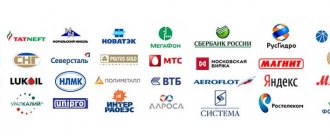According to the provisions of international law, any company undertakes to pay taxes and submit reporting documentation in the state where it was registered. Taking this into account, many entrepreneurs deliberately register in countries with favorable tax laws. This scheme for legalizing activities is called offshore - what it is in simple words, what advantages and disadvantages it has for business, and most importantly, everyone should know how to register in an offshore zone.
What is “offshore” in simple words
The term “offshore” (from the English offshore - “offshore”). The literal translation well reflects the essence of the business registered in this way. Business is “moved to the islands” and becomes inaccessible to the supervisory authorities of the Russian Federation. In countries that provide the opportunity to register companies, government fees are the main source of budget replenishment. This is typical for island dwarf states.
Offshore companies can reduce the tax burden on an enterprise.
It will become easier to understand what the meaning of “offshores” is if you familiarize yourself with the list of key advantages:
- Simple registration of a new company.
- Low level of taxation up to working without paying taxes.
- The ability to maintain the anonymity of the real owner of the company.
- Independence from the political system of the state where the activity is carried out.
The state is not very interested in the activities of such structures, because taxes are paid in the country where the enterprise is registered. If the company is established in Cyprus, then it will pay them there. This is the main feature of “offshore zones”.
Functions of "offshore zones"
What forces you to register a business offshore is, as a rule, the reluctance of its owners to agree to the conditions offered by the state. The motivation can be different - from an attempt to avoid high taxes to the desire to ensure maximum confidentiality of commercial information.
Most entrepreneurs expect offshore companies to increase business profitability.
Typical functions of “offshore zones”:
- Investment. Investment channels are being created in risky markets.
- International trade. Minimum taxation creates favorable conditions for attracting large cash flows and cheap loans.
- Registration of aircraft/ships. Particularly popular are Panama, Seychelles, Bermuda, and the Bahamas.
- Banking. Many offshore zones, such as the Cayman Islands or the Bahamas, provide banking licensing services.
- Insurance. Bermuda is a leader in this area of activity. A significant reduction in the tax burden makes insurance transfers very popular.
Organizations are registered in the zone where more favorable conditions are provided for conducting a specific business, but one should keep in mind the possibility of partners being wary of this way of doing business. In some cases, offshore companies can harm a joint business if, for example, a certain registrar is blacklisted.
Doing offshore business today
Many companies, both Russian and international, have in their assets at least one, sometimes more, offshore company or company in a free economic zone.
First of all, this kind of company is created in order to optimize taxation, open bank accounts in different countries of the world, obtain pseudo-financing, conduct international trade, etc. I would like to especially emphasize that offshore companies should be used for the purposes of tax planning, optimization, and not for tax evasion. Which in turn is punishable by law. There are enough ways to optimize, not only taxation, but also business as such. It cannot be said that some offshore is bad, some is good, it all depends on many factors. It is necessary, first of all, to determine goals and objectives; for some companies, the decisive factor will be political stability, for others the absence of taxation, lack of reporting, etc. Any Russian company that has in its arsenal a foreign company as founders (participants) of the company, as a rule, this is Cyprus, or the British Virgin Islands, or Austria, can be classified and attributed to holding structures, which, in fact, may not be be, but the question arises: “Why are offshore jurisdictions used?” Let’s try to figure it out.
Registration of offshore companies is possible in almost any country in the world. This procedure allows you to:
- reduce taxation costs;
- protect real estate, intellectual property and other property;
- reduce the amount of paperwork;
- increase business competitiveness;
- provide the desired confidentiality;
- gain access to new opportunities and banking services.
From the experience of my professional activities, I can say that the construction of holding structures and schemes is a very complex and costly process, with many nuances and subtleties.
Every company that decides to optimize must clearly understand and structure for what purposes and benefits this is all being done. The classic scheme for creating a holding structure is as follows: A Russian company registers an offshore company; after registration, the newly created offshore company creates so-called transfer companies, which establish a holding company, formally becoming parent companies. For this classic scheme, the UK, the Netherlands, and Austria are most often used. The holding, in turn, can accumulate profits, buy shares of companies, receive income in the form of dividends, and own property. The sole purpose of creating a holding structure is to reduce the tax base as much as possible and legally remove the business from offshore. Thus, the beneficiary owns the entire structure of the group of companies, and such a scheme avoids the risk of loss of property. From a legal point of view, an offshore company is no different from other companies, being a full-fledged subject of economic legal relations and can carry out its activities on an equal basis with other legal entities. Confidentiality is one of the fundamental motives for the existence of offshore business. First of all, this is the protection of data of the actual owner of the company, the beneficiary. For example, in Cyprus, the names of nominal owners are recorded in the Register of Companies, and information about the beneficiaries is kept confidential by the Central Bank of Cyprus, but there is a problem here too.
When registering an offshore company, you will need to provide a photocopy of the beneficial owner's valid passport. One of the good and effective ways to achieve confidentiality is to fax a photocopy of the passport of a trusted person, or a photocopy of another passport. Will never check its authenticity. A document requirement is a formal fulfillment of a legal requirement. Provide any name and then confidentiality will be maintained. This precaution will not hurt at all, because... It is known that the names of the beneficial owners, primarily of Cyprus companies, have already been disclosed to the Russian tax authorities more than once and serious problems have arisen for people who trusted the myth of bank secrecy. Russian authorities always have the opportunity to find out your real name if they so desire. This is done simply, the Consular Officer of the Russian Embassy contacts the Central Bank of Cyprus, where data on all beneficial owners of Cyprus companies is stored, and reports that you are the leader or member of a criminal group involved in money laundering, etc. As proof, he can present to the employees of the Central Bank of Cyprus any charges fabricated against you, which in turn are also criminal offenses in Cyprus. Based on the request received, the Central Bank of Cyprus will provide any information regarding your offshore company and bank accounts. The most important thing in this situation is that neither the registration company, nor the agent, nor especially the bank will inform you that certain actions are being taken against you.
Also, the confidentiality of company ownership is guided by the institution of nominee owners and nominee directors. This means that the registration documents indicate the names of nominal persons rather than real owners. The services of nominee owners and directors are provided by secretarial companies that specialize in a range of services for registering offshore companies.
In most cases, the head of an offshore company is the owner himself. However, there are often situations when the director is a nominal person. In this case, the company is managed directly by its owner or attorney.
A typical mistake in this situation is that a citizen of the Russian Federation openly acts as a director of an offshore company. By this action they formally show that the offshore company is managed from Russia. To optimize taxation and possible risks, there are several options, for example, sending all documents for signature by fax or mail to the address of the nominee director, or signing all documents yourself on behalf of the nominee director. Also, after registering a company, the beneficial owner is sent a package of documents for the company along with its seal, the presence of which must also be kept secret; its open use may have unpleasant consequences for you. Managing an offshore company creates a flexible tax planning mechanism and opens up a wide range of business opportunities for its owner.
One of the classic examples of the use of offshore companies is operations related to the so-called self-financing. Financial funds transferred abroad and registered in offshore structures are, if necessary, returned to Russia in the form of a loan, investment or contribution to joint activities or authorized capital. When using this mechanism or instrument, the company independently sets for itself the terms of the loan, including the term and interest rate, while having full control over the movement of cash flows, and it is important that the receipt and payment of funds occurs legally. From the point of view of the financial component, interest on the payment of borrowed funds is included in the cost price of the Russian company, which allows it to reduce tax costs.
Example: A foreign company places money in the amount of $100 thousand US dollars on deposit in a foreign bank with the condition that the bank will provide a loan to the Russian company at 15% per annum. Thus, the Russian company invests the money received in joint activities with a foreign company, which is entrusted with conducting common affairs under a joint activity agreement. Then the Russian company makes an advance payment abroad formally for the purchase of goods. As a result, the funds are returned to the foreign bank, after which the bank, in turn, again provides a loan to the Russian company at 15% per annum.
As a result of this operation, it turns out that the funds have gone through two circles. At the same time, the Russian company received not $100 thousand US dollars at 15% per annum, but $200 thousand US dollars at 15% per annum, which amounts to $60 thousand US dollars in interest payments. After a certain time, the Russian company repays the loan to the foreign bank with interest, and the foreign company returns the advance payment received from the Russian company for goods not delivered. Thus, the Russian company significantly reduces its tax base because interest payments on a foreign currency loan are charged to cost in an amount not exceeding 15% per annum. (RF Tax Code Art. 269). The benefit of this operation is that the interest paid by a Russian company to a foreign bank is actually transferred by the bank to the account of the offshore company and is not taxed. In the current situation, the bank acts as an intermediary in obtaining a loan for a small fee.
Another widely used method is financing through the authorized capital of a Russian company. To minimize the taxation of dividends transferred abroad, it is best to use the jurisdiction of Cyprus, as a result of which the Cyprus company receives dividends on shares, the amount of which you determine yourself. Using this technique, it is possible to regulate the amount of financial resources placed in shares, the period of their use, and, if necessary, the offshore company will always be able to sell all or part of its share of shares back to the Russian company, thereby withdrawing financial funds abroad. In general, in this situation, it is possible to use any jurisdiction. The Cyprus offshore is used to avoid tax on the income of a foreign legal entity, levied at a rate of 15% only if there is a need to export the profits of a Russian company abroad through dividends on shares.
For many years, Cyprus offshore companies have been very popular in Russia. They are bought with or without reason, for some reason forgetting about the existence of other jurisdictions. After the acquisition of a Cyprus company, it is, as a rule, not used by its owner, because he suddenly learns that in Russian tax legislation there are mainly punitive measures aimed against the use of foreign offshore companies. In Russia, many people still associate offshore companies with Cyprus. It is necessary to firmly understand the fact that it is advisable to use Cyprus companies only when implementing tax planning, based on the favorable opportunities of the agreement on the elimination of double taxation between Cyprus and Russia. In all other cases, it is better to use other offshore jurisdictions, be it Austria, the British Virgin Islands or something else. Today, Cyprus is becoming obsolete, plus the latest amendments and agreements at the governmental level of the two countries. Doing business through the Cyprus jurisdiction is no longer safe. Although, many “monsters” of Russian business continue to use Cyprus as their main offshore.
Over the past year, a lot has changed in the tactics of doing offshore business. Classic offshore schemes, which were recently built in Cyprus, are a thing of the past. The term not “offshore”, but “international tax planning schemes” is increasingly being used. At the same time, companies are abandoning banal offshore purchases and are transferring their business to respectable economic zones.
Over the past few years, another promising, one of the most prestigious and rapidly developing countries for living and doing business – the United Arab Emirates – has been gaining momentum.
Having a company in the UAE is becoming very prestigious, even if it is not cheap (the average annual maintenance of an office and license is $15,000) and simple assets and absolutely cannot be compared with Cyprus. The main difference between a company in an offshore zone and a company in a Free Economic Zone is the fact that an offshore company, as a rule, exists only on paper. A company in a FEZ must actually exist and operate. The UAE government monitors this very strictly and that is why all over the world the prestige of companies registered in FEZs is much higher and is not comparable to the prestige of companies registered in offshore zones. This circumstance, along with proximity to actual consumers of products and the presence of first-class banks, allows us to work on equal terms with companies of any world level.
Each free economic zone is regulated by a separate government agency that registers enterprises and licenses businesses.
Free economic zones provide enterprises with foreign shareholders with the following advantages compared to registration in the rest of the United Arab Emirates: • foreigners are allowed 100% ownership of enterprises registered in the free economic zone; • import and export of services and products of enterprises registered in the SEZ are exempt from taxes in the UAE; • enterprises are guaranteed repatriation of all profits and capital; • enterprises registered in the SEZ are exempt from corporate taxes for 15 years. The law also provides for the possibility of extending this regime for another period of 15 years; some SEZs are exempt for a period of 30 years; • employees of enterprises are exempt from all taxes on personal income.
Due to the favorable geographical location of the UAE, the presence of a well-developed infrastructure, the absence of taxes and the ability to conduct business without local partners (100% foreign ownership), many choose SEZs to locate their companies.
For comparison, the taxation system in the UAE is such that there is no federal taxation of enterprises, and for enterprises registered in Dubai, the following tax rates apply: • 10% - on profits from 1,000,000 to 2,000,000 dirhams*; • 30% – on profits from 2,000,000 to 4,000,000 dirhams; • 40% – on profits from 4,000,000 to 5,000,000 dirhams; • 50% – on profits over 5,000,000 dirhams. *1 US dollar=3.68 dirhams
The UAE also imposes a residential tax of 5%, a commercial property tax of 10%, a hotel tax of 5% and a tax of 5% on entertainment activities.
Free economic zones offer the registration of legal entities of various types, but you need to keep in mind the following: • the authorized capital of the enterprise varies from US$ 15,000 to US$ 250,000. The entire capital amount is paid at the time of registration and deposited in a local bank until the end of all registration formalities; • the enterprise will require from one to five shareholders - individuals or legal entities; • the minimum number of directors (individuals or legal entities) varies in different SEZs; • the appointment of a secretary (individual or legal entity) may be required; • the enterprise is required to have an office in the FEZ.
There are the following types of companies in the UAE:
LLC (Limited Liability Company, 51% of the Authorized Capital of which must belong to a UAE citizen; minimum Authorized Capital is AED 150,000). This is the most common type of enterprise in the UAE, especially large ones. FZC (Free Zone Company - Company in the Free Economic Zone; 100% of the Authorized Capital may belong to foreigners; the company must have from 2 to 5 founders; minimum Authorized Capital - 500,000 dirhams) FZE (Free Zone Establishment - Company in the Free Economic Zone; 100% of the Authorized Capital may belong to a foreigner; 1 founder; minimum Authorized Capital – 1′000′000 dirhams) SA (classic offshore company registered in one of the “free economic zones”; no minimum Authorized Capital; number of founders is not limited; activities are not licensed; resident visas for employees and founders, as a rule, are not issued, depend on the SEZ, are used primarily to direct financial flows)
Operating Free Trade Zones in the UAE:
Jebel Ali Free Zone Authority (JAFZA, Jebel Ali) In 1985, the Government of Dubai decided to create the first free economic zone port in the emirate, Jebel Ali Free Zone Authority (JAFZA), which became the first such project in the Middle East. In a short period of 17 years, the creation of more and more new zones in different emirates has largely changed the economic and industrial scenario of the country. JAFZA is rightfully considered the most successful project of its kind in the world. Today, JAFZA is part of the Dubai Free Zones, Ports and Customs Corporation.
Dubai Airport Free Zone Authority (DAFZA, Dubai) Was founded in 1996 in close proximity to Dubai International Airport. This location is beneficial for companies producing small, high-value goods that can be quickly shipped to foreign markets if necessary. DAFZA is ideal for high information technology, light and pharmaceutical industries, luxury goods, jewelry and watches. Recently, the first flower exchange in the UAE, the Dubai Flower Center (DFC), began to operate successfully at DAFZA, capable of processing and sending around the world up to 180 thousand tons of fresh flowers, fruits, vegetables, and berries per day.
Dubai Technology, Electronic Commerce and Media Free Zone (Dubai) First came Dubai Internet City (DIC), which became the world's first information technology and telecommunications center opened inside a free economic zone. Telephony, Internet access and hosting services, international and long-distance communications according to standards that fully meet the latest requirements of the modern market are always available and serviced at a professional level. Then the desire of the country's leadership to turn Dubai into one of the centers of the international information space was expressed in the creation of Dubai Media City (DMC), which became home to many international news agencies, the world's leading broadcasting companies, newspapers and magazines. Another milestone was the opening of Knowledge Village (KV) in 2003. This ambitious project claims to be a center of modern education in the Middle East, represents branches of the world's leading universities and, in addition, is focused on distance learning via the Internet. There is another free economic zone related to the field of information and high technologies. This is Dubai Silicon Oasis – a twin of the famous American “Silicon Valley”, designed to bring together the most brilliant computer scientists of our time “under one roof”.
Dubai Cars and Automotive Zone (DUCAMZ, Dubai) Exists since 2000 in Ras Al Khor, one of the areas of Dubai. It is located on an area of almost 750 thousand square meters. meters and is engaged in the re-export of used cars to countries in the Asian and African regions, the demand for which is constantly growing. Due to its advantageous location, DUCAMZ has easy access to all airports and seaports of Dubai. It also provides services for full support of car purchase and sale transactions, and supports special tariffs for cargo transportation.
Dubai Health Care City (DHCC, Dubai) A bridge capable of connecting international, regional and local healthcare companies in Europe and Southeast Asia, in 2003, DNCC - Dubai Health Care City was opened. This has provided the opportunity to not only provide patients with world-class, regionally tailored healthcare, but also to create an integrated industry community with the potential to change the face of global healthcare.
Gold and Diamond Park (DGDP, Dubai) Jewelery paradise - DGDP is located on Sheikh Zayed Road, near the Mall of The Emirates and has been in existence since 1999. Ideal conditions have been created here for the successful functioning of the jewelry business: excellent production capabilities in the most environmentally friendly working environment, 24-hour security of facilities, a special Guest Center for tourists and a bus route between DGDP and The Gold Souq. You can open your own jewelry store in DGDP only if you also operate your own jewelry production workshop here.
Dubai Multi Commodities Center (DMCC, Dubai) The Dubai Commodity Center (DMCC) is another strategic initiative of the Government of Dubai. The center provides specific market infrastructure and a full range of services for trading in gold and precious metals, diamonds and gems, energy and other goods (coffee, sugar, etc.). Created in 2002, the Center successfully operates in key market sectors and has all the indicators characteristic of a free economic zone (100% foreign ownership of capital, no taxes for 50 years, and others).
Sharjah Airport International Free Zone (SAIF-Zone, Sharjah) SAIF is located near Sharjah and the port of Khalid, at the intersection of the largest trade routes between East and West. This allows companies to provide ideal sea, land and air connections with the whole world, covering a market of more than 14 million customers not only in the Arab countries, the CIS and Asia, but also parts of Africa and the Mediterranean.
Hamriyah Free Zone (HFZ, Sharjah) Since Sharjah is the only one of the seven emirates with shipping access to both the Persian Gulf and the Indian Ocean, as well as an international airport, the HFZ has become an important transit link for the transportation of petrochemical products and large shipments of cargo. It occupies approximately 10 million square meters. meters of land around the local port of Hamriyah and has its own 14-meter deep-water harbor.
Ajman Free Zone (AFZ, Ajman) Proximity to Sharjah and Dubai and excellent transport links linking Ajman with Oman, Qatar, Saudi Arabia, Iran and Kuwait allows AFZ to position itself as an ideal hub for accessing regional markets.
Ras Al Khaimah Free Zone (RAKFTZ, Ras Al Khaimah) The youngest of the free zones in the UAE - RAKFTZ - is located in the north of the country, in the emirate of Ras Al Khaimah, famous for its natural beauty. In order to preserve nature, the leadership of the emirate decided to attract only those investors from the manufacturing, industrial and technological sectors for whom environmental issues are of paramount importance. In just four years of operation, more than 400 companies from 33 countries have been registered here, and their number is constantly growing. Based on the research, a unique concept of three parks was created: an industrial, technological and business park. The heart of the Business Park is a new international trade and innovation center equipped with the latest technology, where company offices are located. There are also exhibition, shopping and entertainment centers, as well as a five-star hotel. The industrial park is located 15 km to the north, near the port of Saqr; In accordance with environmental requirements, its territory is surrounded by mango trees. The “Technology Park” is located in the south of the emirate, from where you can quickly and easily reach not only Ras al-Khaimah International Airport and the local port, but also Dubai.
Ahmed Bin Rashid Free Zone (ABR, Umm Al Quwain) One of the first free zones, ABR is located on the east coast of the UAE. It has an 845-meter berth, which can accommodate ocean-going ships, and more than 100,000 sq. meters of land for industrial use. In addition to providing tenants with all communications, AVR management provides them with comprehensive support in matters of logistics and business in general.
Fujairah Free Zone (FFZ, Fujairah) The strategic position of FFZ can be called a “door” to the rapidly growing market of the Middle East and CIS countries, which attracts the attention of investors. Access to global markets by land, water and air, diversity of investment areas, management policies maximally focused on the interests of investors, complete investment security truly make FFZ a “Convenience Zone”.
Finally
In today's realities of doing business, most companies have a different task, not tax optimization, but maintaining the company's liquidity, its prestige and status. To enter the international market, many partner companies no longer look at offshore companies with such a positive attitude as before, therefore, now is the time to transfer business to another, more stable and transparent level. According to the author, the most optimal option today is a European offshore (Great Britain, the Netherlands, Austria, Switzerland) or the prestigious free economic zones of the UAE. It is easier to attract foreign capital by showing a transparent ownership structure. In addition, it is usually not profitable for a foreign investor to receive profit from an offshore company or directly from a Russian company due to taxes. And receiving profit from a holding may not be subject to tax if certain conditions are met. In addition, European countries are now trying in every possible way to attract foreign companies to their jurisdictions - competing with each other, they offer increasingly favorable conditions for registration and taxation.
Plus, maintenance is quite expensive, since you have to pay not only for the construction of the scheme itself, the office and employees, but also for legal support. Despite this, companies are ready to invest in building complex holding structures and schemes. Not only because of the image and structured ownership, but because taxes in Russia and internal risk are still high and justify such costs.
FSBU REVIEW 6/2020, 26/2020
What specific actions should an accountant take to make the transition to the new Federal Accounting Standards correctly and in a timely manner? What entries should be made in accounting?
Only on January 31 (Monday) a step-by-step analysis of the transition to new standards in a three-hour webinar with Sergei Vereshchagin.
Sign up>>>
Classification of “offshore zones”
“Offshore jurisdictions” are varied. Options are offered for almost any type of activity. Sometimes the anonymity of a business is associated with the likelihood of illegal activities, which scares away potential partners. But a competent approach to choosing an “offshore company” allows you to avoid most of the pitfalls.
All “offshore zones” are usually divided into the following categories:
- Classic. Provide complete tax exemption on income received outside the “registrar state”. Classic examples are Seychelles, Belize, Panama. When conducting activities on the territory of the Russian Federation in offshore companies, it is not required to provide reports.
- With reduced taxation. Popular for registering a business in countries where taxation is significantly higher than the 10% rate. Such “offshores” require accounting, so the reputation of companies created in them is higher.
There is another category of states that are not formally “offshores”, but provide tax benefits to legal entities. A typical example of such a zone is Cyprus, Great Britain. Due to the high reporting requirements of organizations registered with them, the level of trust is high.
The nuances of opening an account in offshore companies
The conditions for opening offshore accounts differ in each state. In some places they require the personal presence of the depositor, in some banks you can send an authorized representative, and some financial organizations themselves send their employees to the depositors.
When opening an account, you will need to pay the cost of the account opening service and make all necessary payments.
The choice of a bank and an offshore zone must be approached with special responsibility, because You could lose your hard earned money.
Classic “offshore schemes”
The popularity of transferring business to offshore zones is associated with the ease of use of these companies in various areas of activity. Regardless of whether the trade sector or consulting is chosen, the company’s work can bring significantly more profit than with traditional registration on the territory of the Russian Federation.
The profitability of a business depends on the competent use of offshore opportunities.
Typical schemes for using offshore companies look like this:
- The “offshore” company is the founder/shareholder of another organization. Under the terms of dividend payments, the second legal entity can be located and conduct business in any country in the world.
- Trade in the field of import/export. Despite the presence of a markup on goods sold, the organization does not pay taxes, since the main business is localized outside the “registrar state”.
- Investment sphere. Raised funds can be invested without restrictions in any line of business (own or third-party).
This also includes shipowners and aircraft fleet owners. Transferring such companies to offshore makes it easier to enter the international market and obtain cheap loans for the purchase of new ships and aircraft. When working in the service sector, horizons for reducing taxes open up for an enterprise, even in “offshore” conditions like Cyprus. The level of work performed can be significantly reduced by taking into account the costs of a particular company.
Content
- What is "offshore"
- Why is this necessary?
- Tax rate is the main reason for moving a business offshore
- Categories of offshore zones
- How to choose an offshore zone
- The most popular offshore zones
- Schemes for working with offshore companies
- Transfer pricing scheme
- Agency scheme
- Scheme in the construction industry
- Product production scheme
- Transportation scheme
- Royalty scheme
- Offshore accounts
- The nuances of opening an account in offshore companies
- How to register a company offshore
- Pros and cons of offshore companies
- Conclusion
Pitfalls of offshore companies
When choosing a place to register a new company or selecting an option for transferring a long-established company, it is worth considering a whole list of issues in advance. One of them is the presence of “black lists” of “offshore companies” in the Ministry of Taxes and Duties of Russia in other countries. You should immediately determine where the business will develop. If you do not provide for this, you may encounter bank refusals to provide loans and other issues.
A business may turn out to be unprofitable if you choose an unsuccessful offshore jurisdiction.
From the point of view of the Ministry of Finance, the following are considered unfavorable countries for registering an enterprise:
- Liberia.
- Liechtenstein.
- Andorra.
- Angevin Islands.
- Aruba.
- Vanuatu.
- Nauru.
In these countries, you should not register a company if you plan to support banks. If the owner of an enterprise is important to the high reputation of his business, it is worth focusing his attention on the following respectable “offshore zones” - Hong Kong, Singapore, Isle of Man, Montenegro, Switzerland, Ireland, Malta, Channel Islands.
At the level of international politics, other categories of countries are distinguished. They mainly focus on the issues of taking measures to combat money laundering or to prevent the financing of terrorism. Formally, the list of these countries cannot be considered a “black list”; it only divides states in accordance with the legislation they have regarding “offshores” and illegal activities.
Offshore accounts
In offshores you can not only register your business. This is a great place to store your savings.
An offshore account is a bank account of a resident of another country.
In order for everyone to understand the meaning of this definition, we will give an example: A Russian citizen invests money in a Swiss bank. This account will be considered offshore.
Offshore banks do not work with the local population. They do not distribute information about their investors, even at the request of legal and judicial authorities.
Most often, money is taken offshore by people who want to hide their income (for example, deputies). Offshore accounts are not recorded in tax returns, and the amount of tax deductions is reduced accordingly. In this case, maintaining audit reporting is simplified, and the account can be managed from anywhere in the world.
How to open
If all the risks and benefits are weighed, you can begin registering your own business. The first step will be to select a business name with a unique spelling and pronunciation. The high popularity of offshore companies makes this process difficult due to the large number of registered companies. If there is a coincidence, you will either have to come up with a different name or choose another jurisdiction.
In addition to those mentioned, there are several more mandatory points:
- The name of the organization must directly indicate the form of ownership or the presence/absence of limitations on liability.
- Words indicating banking, stock or insurance activities cannot be used in the name if a business is being created in other areas.
- When changing the name, the registrar's approval will first be required, after which a meeting of the founders can be held and the documentation changed.
- The size of the authorized capital directly affects the amount of the registration fee, so they try to declare it large in order to reduce the annual payment.
- The preparation of constituent documents is usually entrusted to service companies; the charter is drawn up in printed form; other details depend on the jurisdiction.
- Accounting reporting in most offshore zones is allowed in free form.
It is necessary to ensure that you have a legal address to which requests from tax authorities and other authorities will be sent. The simplest option for creating an enterprise is to contact specialized companies that provide these services. After registering a company, you can conduct independent activities without contacting them until the decision to re-register/liquidate the legal entity.
Tax rate is the main reason for moving a business offshore
Due to low tax rates, more and more people are moving their companies offshore. It is there that it is minimal or absent altogether.
Most often, the tax is a flat rate that does not depend on the income of the enterprise.
In this combination, everyone is happy, except for the state in which the owner of the company works. After all, the budget is missing quite a large amount of money. Some financial experts blame offshore companies for the global crisis, because... The economy is destabilizing.
Legislation of the Russian Federation and “offshores”
There are statistics - more than half of private capital is located in offshore zones. This trend forces countries, including Russia, to make attempts to control the activities of citizens who become owners of such businesses, because they pay income tax outside the state, but live in it, claiming social guarantees.
There is no separate law on offshore companies. The taxation of companies with foreign jurisdiction is regulated according to No. 376-FZ of November 24, 2014, which defines the concepts of a controlled foreign organization and a controlling person. If a company cannot be classified as a tax agent of the Russian Federation, then an individual or an organization (both residents of Russia) must be recognized as a “second” one.
In addition to tax legislation, regulations to combat the legalization of those profits that, according to the state, can be obtained by criminal means, are fully applied to the activities of “offshore” organizations. This also applies to control of the circulation of foreign currency.
The existence of an agreement concluded between the Russian Federation and 80 countries allows you to avoid double taxation. On the territory of the Russian Federation, there is an order of the Ministry of Finance No. 108n on adding a number of “offshore zones” to the “black list”; in fact, these are jurisdictions that hide data on the financial transactions of any companies registered on their territory. The text of the document is constantly updated, as is the list of “offshores” included in it.
FAQ - answers to frequently asked questions about offshore companies
These questions are most popular among aspiring entrepreneurs and current company managers. Here I will answer the most popular ones.
Question 1. How to open an offshore company?
Most Russian companies wishing to open offshore companies turn to intermediaries. This option saves time and allows you to conclude an agreement taking into account all the legal subtleties. It is clear that this service is not free.
If the interested party decides to carry out the procedure independently, then each jurisdiction provides those interested with a complete list of necessary documents and conditions of the offer.
Question 2. Where to buy a ready-made offshore?
You can buy a ready-made offshore from a company that sells this “product”. There are dozens of such organizations in the world: in particular, you can find a suitable option on the Worldwide Incorporation Services . This resource provides a quick selection of almost all the most relevant modern jurisdictions.
Question 3. What is deoffshorization?
Deoffshorization – reducing the influence of the offshore factor in Russian business.
At the moment, a significant part of large and small domestic companies use foreign assets in their activities. The Russian authorities are interested in increasing taxes, so they are committed to reducing the number of offshore companies in domestic commerce.
Question 4. What does liquidation of an LLC through an offshore provide?
Liquidation through offshore companies is a convenient way to eliminate or minimize debts that a company has accumulated to the budget, as well as to refuse unpaid bank loans.
The method is completely legal if it is formalized legally. The main advantages of this method are efficiency, legality, cost-effectiveness, and the absence of a full accounting audit.
Question 5. What is a beneficiary?
Beneficiary is a legal entity (less often an individual) who is considered the owner of a company transferred to a foreign jurisdiction.
The operation of transferring legal rights is carried out with the aim of hiding the real owner of the company.
I think there is no need to say that the fate of the entrepreneur’s assets and his business as a whole depends entirely on the reliability of the beneficiary. For his services as an intermediary, the beneficiary receives a certain percentage of the enterprise's profits or a fixed fee.
Watch the video on the topic, it explains what offshore is in simple words.











